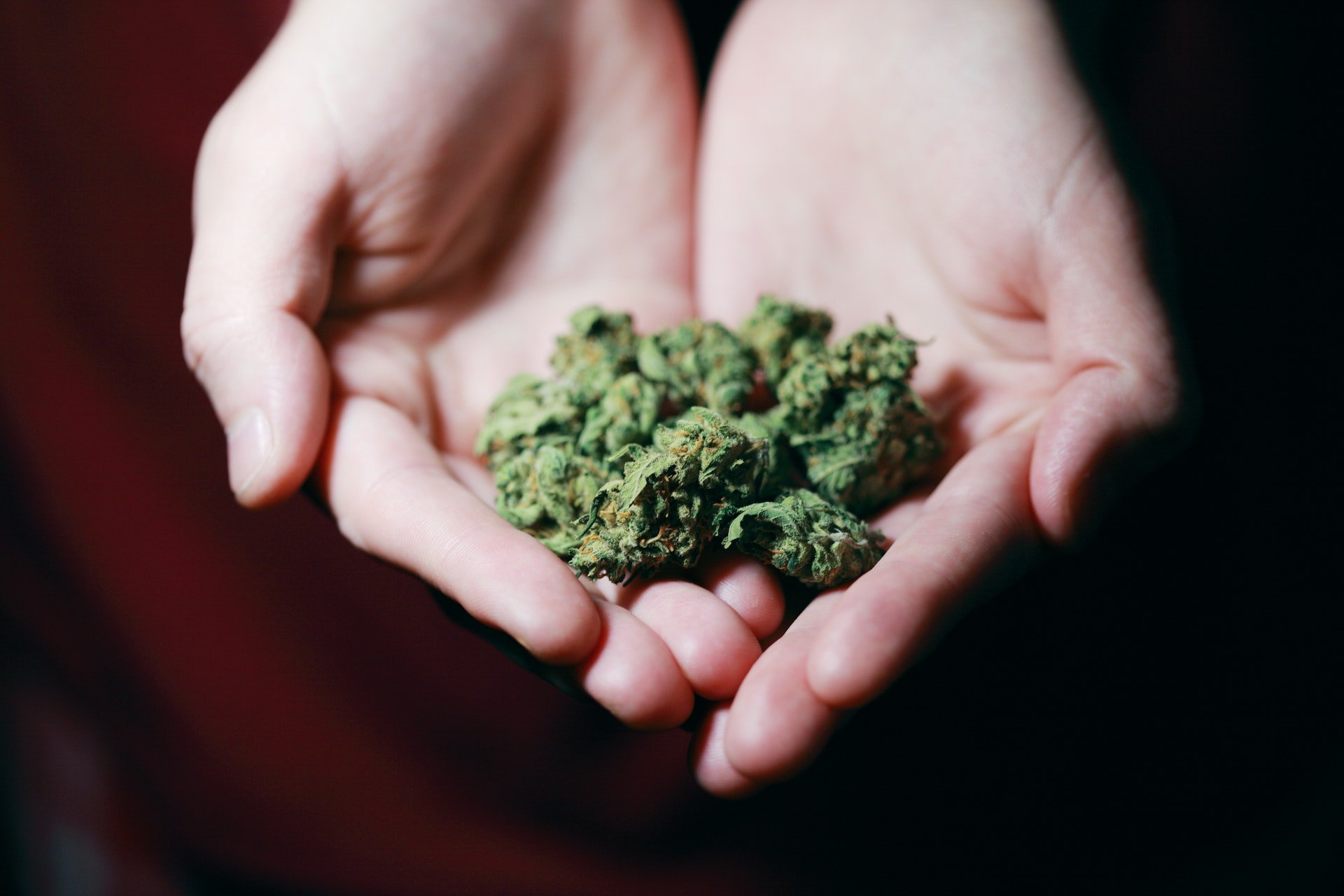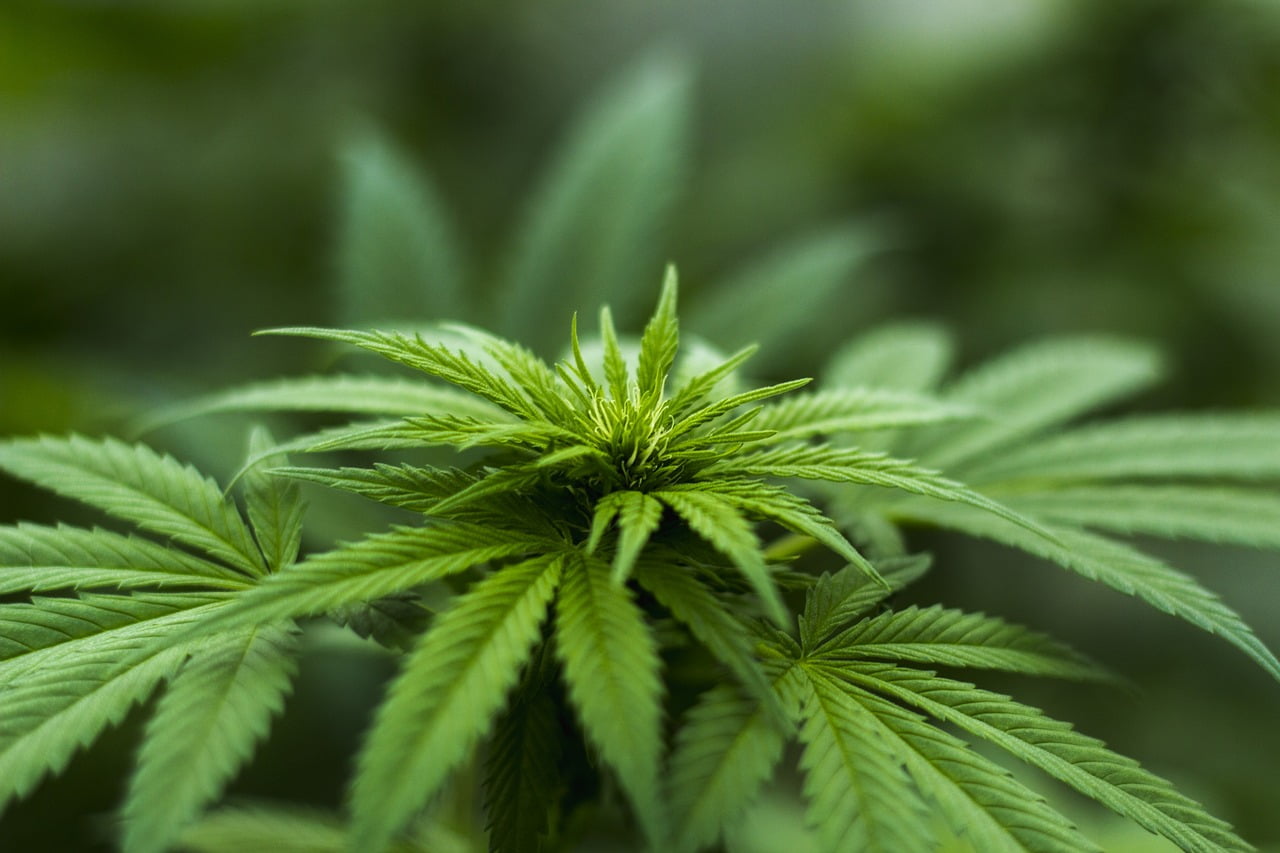How Does Cannabis Affect Driving?
Picture this: you’ve just smoked a substantial joint with your friends, and after a good hour of chatting away, someone asks if you can give them a lift home.
You know their house isn’t far, and you’re assured of your ability to drive: you’re experienced, after all. What’s more, the cannabis has made you feel relaxed, euphoric, and evermore confident in your ability to drive your friend home safely.
Decisions like these are made every day by those who smoke weed: whether they are occasional users or daily smokers.
As with any recreational substance and committing to drive, some people will feel the weight of their decision more keenly than others.
But as rates of cannabis use increase across the UK [1], it’s logical to assume that more people than ever are “stoned” or “high” whilst behind the wheel.
According to a UK government study exploring drugs in reported road fatalities [2], cannabis is a common culprit. Worryingly, it stated that the drugs that contribute to the total for drivers being over the drug-drive limits are mainly cocaine or cannabis.
Since 2014, instances of drivers experiencing life-threatening accidents on the road have been steadily increasing, with many having consumed cannabis before driving.
So, why are so many people making the decision to drive while high?
Worried about the impact of cannabis addiction on your life? Give our experts a call on 0800 088 66 86
Separating Fact from Myth

It’s a commonly accepted fact that drunk driving is a cause of preventable deaths on the road, but the dangers of sitting stoned behind the wheel are less well-known.
According to a study conducted by PSB research [3], nearly 50% of respondents who were cannabis users believed they could drive safely while high.
In contrast, only 14% of weed abstainers believe that someone who’s stoned is safe behind the wheel.
Because cannabis is the second most widely used drug in the UK (with alcohol unsurprisingly taking the top spot), its consumption has become somewhat normalized.
What’s more, many people believe that because alcohol is the primary killer on the road, cannabis-impaired driving is somehow not as dangerous.
When someone smokes or ingests cannabis, the symptoms they experience can vary widely, and while one person might be unable to stand up straight, another might seem completely functional.
However, the various ways in which cannabis affects the brain and nervous system are always a cause for concern when it comes to driving.
Don’t let cannabis addiction control you – get the help of a drug and alcohol rehab by calling us on 0800 088 66 86
How Cannabis Effects the Brain and How This Impacts Driving

To understand how cannabis affects driving, it’s crucial to explore how this drug impacts the brain, and by extension the body. As many of us know, driving is a complex activity that requires our full attention and alertness.
Even if you’ve been driving for many years and stepping behind the wheel feels automatic, there are uncountable decisions and processes that your brain relies on to get from A to B.
Unfortunately, cannabis impairs our ability to do so in a number of ways [4].
Whether you’ve smoked a joint or eaten an edible, marijuana will act on your brain in similar ways to reduce your balance, coordination, and judgment.
It all comes down to the main chemical found in all strains of cannabis: THC, or Tetrahydrocannabinol, which is responsible for the plant’s psychoactive effects (drowsiness, euphoria, relaxation, etc).
THC is in fact very similar to another compound found in our brains: anandamide, which is responsible for feelings of pleasure (also called our “happy molecule”).
Because these two molecules are so similar in structure, our brains recognize THC and allow it to alter communications between neurotransmitters.
So, THC can attach to molecules called cannabinoid receptors in the brain and activate them, which disrupts various mental and physical functions.
More specifically, THC affects the Hippocampus and orbitofrontal cortex: two areas of the brain that are responsible for memory, learning, and focus.
Essentially, interference in these parts of the brain makes it more difficult to remember things (such as how to operate machinery) and perform complex tasks, even if we’re confident in our ability. On top of this, THC disrupts the functioning of the cerebellum and basal ganglia.
These brain areas regulate balance, posture, coordination and reaction time, all of which are crucial to being a safe driver.
So, let’s dive into how all these brain changes can directly impact your performance on the road. Consuming weed before taking the wheel will mean that you have:
1. Slower Reaction Times
Being slower to react and move around are stereotypical effects of cannabis and have contributed to the image of the archetypal weed smoker (think Shaggy from Scooby Doo).
When we talk about slow reaction time, we’re referring to the time between perceiving a stimulus and responding to it.
As previously mentioned, cannabis use impacts areas of the brain that control task performance and coordination, making our reaction times slower.
This is because blood flow to the cerebellum, the area that oversees your timing of movements, changes in response to THC.
In the context of operating a car, this can be dangerous to say the least.
A huge component of driving is safely avoiding other vehicles on the road and reacting swiftly to the decisions of everyone else, whether they are pedestrians or fellow drivers.
Numerous studies have shown that drivers under the influence of cannabis were less able to stay within their lanes than those who were sober.
They were also more likely to run a red light, stop the car effectively, and make other important decisions based on having an effective reaction time.

2. Impaired Judgement
Unlike “upper” drugs such as cocaine and MDMA, cannabis doesn’t give users the illusion of thinking clearly.
While you might feel more relaxed and in control after taking cannabis, your senses are far from being switched on, and your judgment can be compromised.
When someone uses cannabis, whether it’s their first time or one hundredth, they will probably feel more relaxed than usual.
This is because the psychoactive compound in cannabis is linked with feelings of euphoria, relaxation and sociability, causing people to remain confident while under the influence.
However, because your balance, coordination, and other motor skills are compromised, this intense relaxation can be dangerous on the road.
For example, you might think it’s safe to overtake another vehicle, but won’t realize that there’s a bend in the road that prevents your view of incoming traffic.
3. Impaired Balance and Coordination
It’s not uncommon to feel wobbly after smoking a joint of ingesting weed; you might notice that you can’t walk as well, or that your hands and feet aren’t cooperating in the way you want them to.
As we’ve explored cannabis slows down the communication between neurotransmitters [5] in parts of the brain that affect balance and coordination.
You might be thinking “But I’m sitting down when driving, so what’s the issue?” and this is an assumption that many weed smokers make.
However, even though our body is while driving, we still need to focus on the road. It’s this ability to focus that is compromised when our balance and coordination skills are off-kilter.
For example, if you cannot successfully control your hands and feet, then you cannot be expected to operate the wheel and brakes of your car effectively.
You might be unable to stop in time if someone walks into the road suddenly, making you a hazard on the road.

4. Distorted Perception of Distance and Time
Consuming cannabis can leave someone with a skewed perception of time and distance, an experience enjoyed by any, but deemed unsettling for others.
Often people report that, when on cannabis, the minutes seem to flow into hours, with time either being slowed or sped up dramatically.
This makes it increasingly difficult to judge the speed or distance of another vehicle on the road.
If someone is experiencing a distorted sense of time, it’s likely that they’re also unable to judge distance correctly.
Various studies have commented that cannabis affects the user’s three-dimensional vision, meaning that objects can appear to be closer or farther away than they actually are.
This is known as visual processing impairment [6]: the inability to process what we’ve seen accurately.
So, how can this manifest in real-life driving situations? Individuals who have smoked cannabis are less likely to process what is happening on the road, and a lot of this is down to decreased time and distance perception.
Not only are they less able to perceive what’s happening around them, but they are also unable to respond efficiently: whether this is braking on time, steering, or staying in their lane.
Find your way towards recovery from cannabis addiction at a drug and alcohol rehab by calling us on 0800 088 66 86
Factors That Influence Someone’s Driving Whilst High

With all of this being said, there are a myriad of factors that can affect how cannabis will impair someone’s driving. This is a drug that affects every user differently, and it’s impossible to predict the exact symptoms someone will experience.
Factors such as individual biology, genetics, the method of consumption, and the dose of THC.
It’s generally accepted that higher doses of THC will increase the user’s impairment on the road, as the effects will be stronger.
Certain strains of cannabis contain higher levels of this compound and produce different effects, which is another factor to consider.
Moreover, someone who decides to drive immediately after smoking cannabis as opposed to a few hours after the event may be more prone to unsafe behaviours.
However, the method of consumption plays a part here, too. Those inhaling cannabis will start experiencing symptoms in around 10 minutes, with the effects lasting between 2-4 hours.
By contrast, those who have taken an edible will feel the effects in around one hour and will continue feeling them for around 6 hours.
Find your way towards sobriety with the help of our experts by calling us on 0800 088 66 86
What Happens if You Are Caught Driving While High?

Wherever you are in the world, being caught driving with cannabis in your system is a serious offence, [7] with penalties ranging from fines to imprisonment.
Here in the UK, being caught with more than 2 micrograms of Delta-9-tetrahydrocannabinol (THC) per litre of blood can mean you receive a drug driving charge.
Different methods are used to determine the presence of cannabis in your system, outside of the police officer’s natural suspicion.
The main method involves testing for the presence of THC in your breath or blood.
Get the help you need to beat cannabis addiciton by giving us a call on 0800 088 66 86
Maximise Your Safety

If you’ve ever been tempted to drive under the influence of cannabis, or been in the presence of someone considering driving while high, there are various ways to keep yourself safe:
- Ensure you have a designated driver: If you know there’s a strong chance you could be smoking cannabis, it’s important to make sure you have a designated driver. This could mean calling a loved one to pick you up or having them agree to drive you to and from the location beforehand.
- Taking Public Transport: If you cannot organise someone to be your sober driver, there’s always the option to take public transport. Taking a bus, train, or taxi to and from your destination is far less dangerous, as it puts you in the hands of those who are safe to operate vehicles.
- Separate cannabis use from travelling entirely: A common question that people ask is “How long after smoking cannabis can I drive safely?”, but this is a nearly impossible question to answer. The safest option is to eliminate your risk entirely and separate cannabis use from making any journeys.
Recover from cannabis addiction at a drug and alcohol rehab near you by calling us on 0800 088 66 86
Resources For Cannabis Addiction

Taking cannabis might be a one-off or occasional event, whether it’s to wind down after a long day or to relax with friends.
It could, however, be a regular or daily occurrence. If this is the case, your cannabis use might be something to worry about.
There’s a misconception that cannabis is not as addictive as alcohol or harder drugs, but this is not entirely true. Cannabis Use Disorder [8] is a recognised and serious condition that can seriously affect your well-being and progression in life.
The good news is, there are various sources of help and support should you choose to reach out. Simply call Rehab Recovery [9] today at 0800 088 66 86 to receive confidential advice from one of our in-house experts.
References
[1] Drug misuse in England and Wales: year ending June 2022 Drug misuse in England and Wales – Office for National Statistics (ons.gov.uk)
[2] Drugs in reported road fatalities in Great Britain, data to 2021 Drugs in reported road fatalities in Great Britain, data to 2021 – GOV.UK (www.gov.uk)
[3] Half of Cannabis Users Think They Can Drive Safely While High – Are They Right? Half of cannabis users think they can drive safely while high – are they right? | Cannabis | The Guardian
[4] Cannabis effects on brain structure, function, and cognition: considerations for medical uses of cannabis and its derivatives Cannabis effects on brain structure, function, and cognition: considerations for medical uses of cannabis and its derivatives – PMC (nih.gov)
[5] The British Journal of Psychiatry: Pharmacology and effects of cannabis, A brief review Pharmacology and effects of cannabis: A brief review | The British Journal of Psychiatry | Cambridge Core
[6] Effects of cannabis on visual function and self-perceived visual quality Effects of cannabis on visual function and self-perceived visual quality – PMC (nih.gov)
[7] Drugs and driving: the law Drugs and driving: the law – GOV.UK (www.gov.uk)
[8] Marijuana Use Disorder/Cannabis Use Disorder
[9] Rehab Recovery: Skunk Addiction Help and Treatment Skunk Addiction Help & Treatment – Rehab Recovery (rehab-recovery.co.uk)




